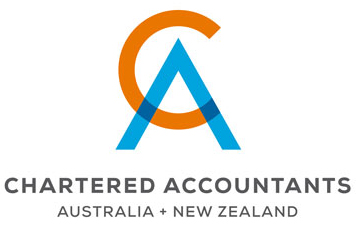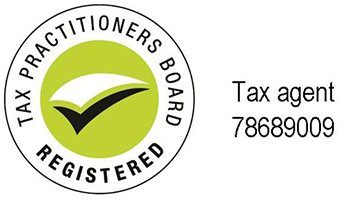Business Bulletin
In This Issue
- ATO attack on trusts and unpaid present entitlements continues
- Lifestyle assets and Division 7A
- Tax Agent Services Regime
- FBT time again
ATO attack on Trusts & unpaid present entitlements continues
In December 2009, the ATO released a draft ruling (TR 2009/D8) outlining how Division 7A should apply to private companies with an unpaid present entitlement from a trust.
Given the extensive consultations between the professional bodies and the ATO on this issue last year, the professional bodies were surprised by the content of the draft ruling released by the ATO in December. The professional bodies are currently preparing submissions in relation to the draft ruling.
The draft ruling outlines when the ATO considers that an unpaid present entitlement should be treated as a loan. A consequence of treating an unpaid present entitlement as a loan under Division 7A is that, unless the loan satisfies certain requirements, the loan will be treated as a deemed dividend for tax purposes.
Division 7A – background
Division 7A is designed to ensure that private companies are not able to distribute profits to shareholders by way of non-arm’s length payments or loans rather than as taxable dividends.
Where Division 7A applies, such payments and loans are treated as dividends in the hands of the shareholders.
Draft ruling
The draft ruling is concerned about when a private company will be taken to have made a "loan" to a shareholder for the purposes of Division 7A.
More specifically, the draft ruling is concerned about the situation where:
- a private company has a present entitlement to an amount from a related trust (ie it can call for immediate payment of the amount by the trust);
- the amount remains in the trust rather then being distributed to the private company (ie there is an unpaid present entitlement); and
- the amount is used by the trust for its own purposes or intermingled with other trust funds (as opposed to being held by the trust on a sub-trust for the company).
The draft ruling provides that there will be a Division 7A loan where:
- a private company beneficiary lends (by agreement, authorisation or ratification) money in satisfaction of an unpaid present entitlement;
- the trustee creates a loan for the benefit of the private company beneficiary pursuant to the trust deed instead of creating an unpaid present entitlement;
- there is a subsisting unpaid present entitlement and the private company has in substance effected a loan or provided financial accommodation in respect of that unpaid present entitlement; or
- an unpaid present entitlement has been allowed to remain outstanding for use by the trust generally (as opposed to being used or invested or lent for the absolute benefit of the corporate beneficiary).
To illustrate
The draft ruling seeks to treat unpaid present entitlements such as the one below as loans (and therefore dividends).
Mrs A

Based on some of the examples in the draft ruling, it is important to note that an unpaid present entitlement can be converted into a loan as a result of acquiescence.
In this regard, the draft ruling states that there may be a loan (by way of financial accommodation) where a private company authorises (including by acquiescence with knowledge) the continued use by the trust of funds representing the company’s unpaid present entitlement by not calling for:
- the payment of that unpaid present entitlement; or
- the investment of the funds representing the unpaid present entitlement for the company’s absolute benefit (as opposed to the funds being intermingled with the trust’s other funds).
warning
Companies entitled to distributions from a trust that have remained unpaid for any length of time should carefully consider the application of the draft ruling.
Use of private company assets
In the 2009/10 Federal Budget, the Government announced its intention to tighten the rules relating to the taxation of benefits provided by a private company to its shareholders or their associates through the use of "lifestyle" assets (ie cars, boats, holiday houses, hobby farms).
Exposure draft legislation has now been introduced to implement the proposed changes to Division 7A. The professional bodies are currently preparing submissions in relation to the exposure draft legislation.
Draft legislation
The draft legislation removes the scope for private companies to allow company assets – such as real estate, cars and boats – to be used for free, or at less than their arm’s length value without paying tax.
Under the current Division 7A, certain payments and loans by private companies to their shareholders are treated as deemed dividends.
Under the new legislation the definition of "payment" has been expanded so that it includes a lease, licence or right to use company assets.
To illustrate
The provisions may apply where:

This means that all of the following scenarios could fall foul of Division 7A (subject to any exemptions being applicable):
- farmhouses used by farmers where the farmhouse is owned by the farming company and the company (rather than the farmer) is carrying on the farming business;
- any use of a company car, holiday house, boat or other asset by shareholders of the company; and
- the right to use part of a shop or medical practice to live in where the relevant dwelling is owned by a company and the living space is more than 10% of the dwelling.
A question to ask
Are your shareholders using company cars, houses (including farmhouses and holiday houses) or boats?
Tax Agent Services regime starting
The new Tax Agent Services Regime will commence on 1 March 2010.
This regime will affect all tax and BAS agents providing tax agent or BAS services. This includes, but is not limited to persons providing tax advice, ascertaining tax liabilities, entitlements or obligations and representing clients in dealings with the Commissioner. This will affect accountants, bookkeepers and some lawyers.
The new regime is intended to ensure that tax agent services and BAS services provided to taxpayers are of an appropriate standard.
Some of the key legislative elements of the new regulatory regime are summarised below.
The Tax Agent Services Act 2009 provides for:
- The establishment of the new national Tax Practitioners Board;
- a legislated Code of Professional Conduct to govern the provision of tax agent and BAS services;
- a wider range of disciplinary sanctions which may be imposed by the Board;
- registration and regulation of tax agents and BAS agents; and
- a ‘safe harbour’ for taxpayers from penalties who use tax agents or BAS agents in certain circumstances.
The Tax Agent Services Regulations 2009 provide:
- requirements for registration as a tax agent and a BAS agent;
- definitions and requirements for recognition as a recognised tax agent association and recognised BAS agent association; and
- fees for registration.
It is essential that all tax practitioners and BAS agents understand the new regime and the impact it will have on them.
Do you need to register?
For tax agents, the answer to this question will depend on whether they are providing "tax agent services".
A "tax agent service" includes, but is not limited to:
- preparing or lodging a return, notice, statement, application or other document about a taxpayer’s liabilities, obligations or entitlements under a taxation law;
- preparing or lodging on behalf of a taxpayer an objection against an assessment, determination, notice or decision under a taxation law;
- applying to the Commissioner for a review of, or instituting an appeal against, a decision on an objection;
- giving a taxpayer advice about a taxation law that the taxpayer can reasonably be expected to rely upon to satisfy their taxation obligations; and
- dealing with the Commissioner on behalf of a taxpayer.
TIP
If you are providing tax agent services it is time to consider the new regime in detail.
Do you meet the registration requirements?
To be eligible to register, an entity must satisfy:
- a fit and proper person test; and
- prescribed qualification and education requirements.
The following case studies illustrate the registration requirements.
Who is fit and proper?
Two years ago, Bill was convicted of a drink driving charge. He received a suspended prison sentence.
This is a matter that would need to be disclosed to the Board for their consideration when determining whether Bill is a fit and proper person.
Does an accounting degree qualify you to register?
Bill has an accounting degree and has been working as an accountant for the last 12 months.
Unless the transitional rules are applicable, Bill will need to complete an approved course in Australian taxation law and commercial law to be eligible to register.
Does a diploma qualify you to register?
Bill has an accounting diploma. He has been working as a tax lawyer for the last 2 years.
Unless the transitional rules are applicable, Bill will need to complete an approved course in Australian taxation law and commercial law to be eligible to register.
Does a law degree qualify you to register?
Bill has a law degree and is admitted as an Australian legal practitioner. He has been working as a tax lawyer for the last 12 months.
Unless the transitional rules are applicable, Bill will need to complete an approved course in basic accountancy and Australian taxation law to be eligible to register.
Does work experience qualify you to register?
Bill does not have any tertiary qualifications. However, he has worked as an accountant for the last 8 years.
Unless the transitional rules are applicable, Bill will need to complete an approved course in basic accountancy, Australian taxation law and commercial law to be eligible to register.
What if I have not completed any of the required approved courses?
In this case, Bill would only be eligible to register if he is a voting member of a recognised professional association (such as the Taxation Institute) and he has at least 8 years of relevant work experience.
FBT Time again
With the end of the fringe benefits tax (FBT) year only a matter of weeks away – 31 March 2010 – it’s that time of year to make sure you
are on top of your FBT obligations. To get prepared, we suggest you:
- check whether you have provided any fringe benefits to your employees in respect of their employment that are taxable; and
- make sure you are ready to lodge your FBT return and pay any FBT liability on time.
Your FBT basics checklist for 2010
- The current FBT year runs from 1 April 2009 to 31 March 2010
- As an employer, you are responsible for calculating your FBT liability, if there is one, and paying any FBT liability.
- If you have an FBT liability, you must lodge your FBT return and pay your FBT liability by 21 May 2010 (or 28 May if you are on the tax agent’s lodgment program).
- FBT is separate from income tax and is levied at the top personal marginal rate of income tax, including the Medicare levy (ie currently 46.5%).
- You can generally claim an income tax deduction for the cost of providing fringe benefits and for the FBT you pay.
- Where the total taxable value of reportable fringe benefits for an employee is more than $2,000 for the current FBT year, you will have to disclose this value (grossed-up) on the employee’s payment summary.
Disclaimer
Taxwise® News is distributed quarterly by professional tax practitioners to provide information of general interest to their clients. The content of this newsletter does not constitute specific advice. Readers are encouraged to consult their tax adviser for advice on specific matters.

